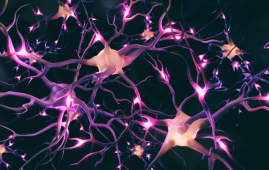

The term dementia does not stand for one particular disease; it stands for a collective behavioral change that impacts the thinking and decision-making ability of the elderly. Recently, the western world was re-introduced to Dementia when Hollywood actor, Bruce Willis, got diagnosed with an untreatable form of the condition, frontotemporal dementia. His family released a statement; “While this is painful, it is a relief to finally have a clear diagnosis. Today there are no treatments for the condition, a reality that we hope can change in the years ahead.”
What is Frontotemporal Dementia?
Frontotemporal dementia (FTD) is a group of neurological conditions that affect the frontal and temporal lobes of the brain. Some parts of these brain regions start to shrink in this kind of illness (atrophy).
Some people experience dramatic personality changes, and some even display impulsive or emotionally detached behavior that makes them socially inappropriate. According to the Mayo Clinic, some people also lose the capacity to speak clearly.
Symptoms of Frontotemporal Dementia
The symptoms of frontotemporal dementia include:
- Profuse sweating
- Increased sex drive
- Lack of personal hygiene
- Impaired judgment
- Lack of empathy
- Loss of interest in daily life
- Lack of motivation
- Broken speech
- Distraction
- Trouble being organized
- Mood swings
Is There Any Cure for Frontotemporal Dementia?
At present, there is no cure for frontotemporal dementia. However, different medications like anti-depressants and anti-psychotics are prescribed to the patients to alleviate the symptoms of the condition. There are therapists available to help patients with speech and behavioral changes.
How To Support Someone Suffering from Dementia
A person suffering from dementia has a hard time figuring out what is exactly going on. Sometimes clinical diagnosis also takes months and hundreds of tests. Bruce Willis was diagnosed with frontotemporal dementia almost a year after his Aphasia diagnosis. His family has said, “Today there are no treatments for the disease, a reality that we hope can change in the years ahead. As Bruce’s condition advances, we hope that any media attention can be focused on shining a light on this disease that needs far more awareness and research.” The patient deserves privacy and respect to cope with the changes that dementia brings. Also, supporting them with daily tasks like cleaning and eating can make their lives easier.
Is Dementia a Normal Part of Aging?
Dementia is not a normal part of aging. Aging brings changes like fatigue, tired muscles, and minor memory loss like misplacing the house keys. But aging does not bring major behavioral changes and loss of a huge chunk of memory. Dementia requires clinical support from therapists and doctors to manage the symptoms and make the patient’s life easier.
Dementia may not have any cure, but with on-time diagnosis and medical support, it is definitely a manageable condition. You can get more information about dementia by visiting: https://bit.ly/3Efl7br
more recommended stories
 Machine Learning Predicts Early Mortality in IBD Patients
Machine Learning Predicts Early Mortality in IBD PatientsA groundbreaking study published in the.
 BRP Peptide for Weight Loss: A Natural Alternative to Ozempic?
BRP Peptide for Weight Loss: A Natural Alternative to Ozempic?The rising obesity epidemic has fueled.
 Father’s Diet & BMI Don’t Affect Newborn’s Birth Weight
Father’s Diet & BMI Don’t Affect Newborn’s Birth WeightA recent study published in Nutrients.
 How Fast Are Your Organs Aging? Simple Blood Test May Tell
How Fast Are Your Organs Aging? Simple Blood Test May TellNew research from University College London.
 Continuous Glucose Monitors May Mislead Healthy Users
Continuous Glucose Monitors May Mislead Healthy UsersCGMs and Their Expanding Use Originally.
 Can Your Genetics Influence Your Income and Health?
Can Your Genetics Influence Your Income and Health?A New Perspective on Health and.
 Air Pollution Hurts Brain Health in Just 4 Hours
Air Pollution Hurts Brain Health in Just 4 HoursAir Pollution Blurs the Mind, Impairs.
 AI Uncovers Hidden Pregnancy Risks for Stillbirth
AI Uncovers Hidden Pregnancy Risks for StillbirthA groundbreaking AI-driven study has identified.
 Groundbreaking Study on Neurons & Natural Behaviors
Groundbreaking Study on Neurons & Natural BehaviorsEight years of work. A collaboration.
 Inogen’s SIMEOX 200 Gets FDA Clearance for Airway Care
Inogen’s SIMEOX 200 Gets FDA Clearance for Airway CareInogen, Inc., a medical technology company.

Leave a Comment